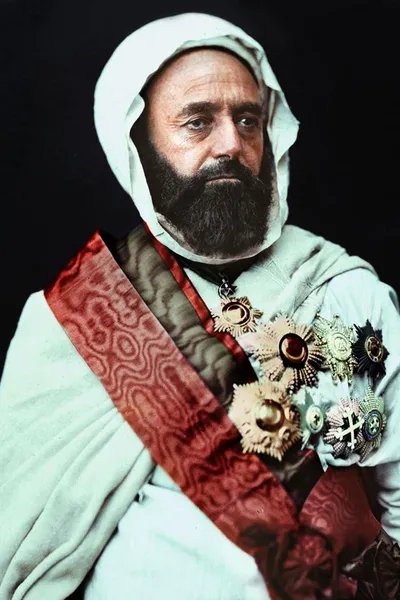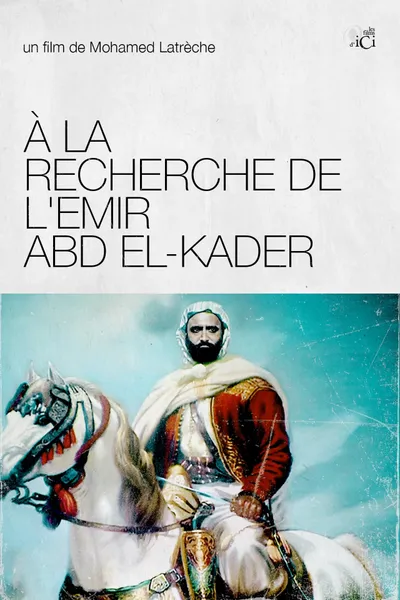
Abdelkader ibn Muhieddine
Abdelkader ibn Muhieddine (Arabic: عبد القادر بن محي الدين (ʿAbd al-Qādir ibn Muḥyiddīn), also known as Emir Abdelkader, or Abdelkader El Djezairi (Abdelkader the Algerian), born September 6, 1808 in El Guettana, in the regency of Algiers, and died May 26, 1883 in Damascus, Syria, is an Algerian emir, religious and military leader, who led a fight against the conquest of Algeria by France in the middle of the 19th century.
His father, Mahieddine, from the Qadiriyya Sufi religious brotherhood, gave his son a remarkable education in matters of religion, making him an excellent horseman and an outstanding fighter. he will also study Arabic literature, mathematics, astronomy, history and philosophy.
The fall of the Ottomans in Algiers in 1830 then that of Oran, allows Abd El-Kader to go down in history when the tribes of the region of Mascara and Oranie come at the end of 1832 to propose the title of sultan to his father. who declines the offer in favor of his son. After the capture of Algiers by France, Abd El-Kader proclaims the first jihad against the colonial enemy. The young Abd el-Kader is chosen as general (emir) to form a corps of cavalry which harasses the French occupiers. A guerrilla warfare marked by turnarounds and deadly ambushes continued until 1842, when Marshal Bugeaud, Governor General of Algeria, decided to break the resistance with a "total war". On May 16, 1843, the smala (chief's clan) was taken by the Duke of Aumale. In December 1847 the emir went against the promise that he would be allowed to go into exile in Alexandria or Saint-Jean d'Acre. As a pledge, he gives his saber and his famous black horse.
Louis-Philippe, fearing that the emir would remain a rallying point for opponents of French colonization, embarked him for Toulon. Four years of peregrinations forced by the political situation in France does not allow the fate of Algerian prisoners to be settled. However, personalities from all walks of life come to talk to the emir, captivated by his curious mind and his great erudition. The Algerian manifests a strong desire to bring Islam closer to Christianity and the East to the West, which binds him to Louis-Napoleon Bonaparte who has a passion for Algeria and for the Arabs. Also in 1852, the prince-president decided to release Abd El-Kader, against the simple promise that he would not return to Algeria.
The emir moved to Damascus, Syria, where he devoted himself to teaching theology in the city's holy places such as the Umayyad mosque. Between July 9 and July 17, 1860, he intervened by force to protect the Christian families who came to take refuge in large numbers in the Algerian quarter, from the massacres perpetrated by the Druses. He saves nearly 1,500 from certain death. The noble attitude of the emir during the massacres of Damascus will be praised in France. Napoleon III awarded him the Grand Cordon of the Legion of Honor. President Lincoln sent Abdelkader two pistols to thank him honored Abd el-Kader as a great humanitarian for saving thousands of Christian lives in 1860.
Abd El-Kader died in Damascus in 1883. His ashes were taken to Algiers in 1965. For European believers, Abd El-Kader remains an actor of religious peace and one of the greatest mystics of the 19th century, who left a work of rare depth on his own inner journey: "The Book of Halts, Kitab al-Mawaqif".
Known for
Acting
Place of birth
El Guettana, Algeria
Birthday
9/6/1808



